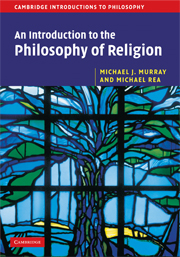6 - Anti-theistic arguments
Published online by Cambridge University Press: 05 June 2012
Summary
Having looked at arguments for the existence of God, we now turn to look at arguments against God's existence. Novices in the philosophy of religion often initially think that there is something wrong-headed about the project of coming up with arguments for the non-existence of God. “How,” it is often asked, “can one prove the non-existence of something?”
This is a good question. How can we prove, or at least provide good reasons to believe in, the non-existence of anything, God included? There are at least three ways. One way we can show the non-existence of something is by showing that the thing described is impossible. If someone tells you that she has a round square in her pocket, you would know that she is wrong. You know there is no round square in her pocket (or anywhere else), because you know there cannot be round squares. Round things necessarily lack corners while squares necessarily have corners. One thing can't both have and lack corners. So there can be no such thing as a round square.
Impossibility arguments for the non-existence of God are not uncommon. In fact, in chapters 1 and 2 we looked at a number of arguments that aim to show that the attributes of God are internally incoherent or inconsistent with other attributes. These might be seen as attempts to show that God does not exist because God is like a round square.
Information
- Type
- Chapter
- Information
- An Introduction to the Philosophy of Religion , pp. 157 - 190Publisher: Cambridge University PressPrint publication year: 2008
